Navigating the world of franchise legal compliance can feel overwhelming, but it doesn't have to be. In this article, we'll break down the essential components of franchise agreements and the key legal requirements you need to be aware of. Understanding these nuances not only protects your investment but also fosters a successful relationship with your franchisor. So, grab a cup of coffee and join us as we dive deeper into the intricacies of franchise legal compliance!

Franchise Agreement Terms
Franchise agreements are vital legal documents outlining the relationship between franchisors and franchisees. Key components include initial franchise fees, which can range from $20,000 to $50,000, ongoing royalties typically set at 4% to 8% of gross sales, and the duration of the agreement, often spanning 10 to 20 years. Terms regarding training and support, such as mandatory initial training programs lasting 1 to 4 weeks, must be specified. Territorial rights restrict franchisees to designated areas, ensuring market protection. Compliance with operational standards, brand guidelines, and advertising contributions also play crucial roles. Adhering to these terms safeguards franchisor interests while enabling franchisees to thrive in local markets, fostering brand consistency across multiple locations.
Regulatory Requirements
Ensuring franchise legal compliance is crucial for maintaining operational integrity within franchise systems, including adherence to the Federal Trade Commission (FTC) Franchise Rule. The requirement to provide a Franchise Disclosure Document (FDD) at least 14 days prior to signing any franchise agreement is essential to ensure transparency. Specific disclosures, including financial performance representations and litigation history, must be accurately presented within the FDD. Additionally, state-specific regulations, such as those in California (requiring a separate franchise registration), need to be respected to avoid legal pitfalls. Compliance with local zoning laws and health regulations is necessary for establishing franchise locations, especially in industries such as food service and retail. Regular legal audits and training on these regulatory requirements can support franchisees in understanding their obligations, ultimately fostering a robust franchise system.
Intellectual Property Rights
Franchise compliance with Intellectual Property Rights (IPR) is critical for safeguarding brand identity and maintaining competitive advantage in the market. Trademarks, such as logos and slogans, alongside copyrights, protect original designs and publications related to the franchise. Compliance requires adherence to licensing agreements, which stipulate the proper use of these assets. Key regulations, like the Lanham Act in the United States, emphasize the importance of registration and renewal processes to maintain trademark protection. Franchisors should provide ongoing training regarding IPR to franchisees, ensuring awareness of both domestic and international laws, especially in regions like the European Union, where regulations can vary significantly. Frequent audits should be conducted to identify unauthorized use, prevent infringement, and enforce rights effectively. Engaging legal counsel with expertise in IPR can help navigate complex issues and protect the integrity of the franchise brand.
Dispute Resolution Mechanisms
Dispute resolution mechanisms are essential components of franchise agreements in legal compliance that ensure conflicts are addressed effectively. Options such as mediation, arbitration, and litigation provide structured pathways for resolving disputes among franchisors and franchisees. Mediation, a collaborative process, typically involves a neutral third party facilitating discussions, fostering communication, and aiming for mutually agreeable resolutions. In contrast, arbitration entails a more formal procedure where an arbitrator renders a binding decision based on the evidence presented. Both mechanisms often prioritize confidentiality and expedited resolutions, minimizing the disruption to business operations. Understanding the specific terms for dispute resolution, including timelines and applicable jurisdictions--such as the governing laws of states like California or New York--is critical for adherence to franchise regulations. The effective implementation of these mechanisms can ultimately preserve business relationships and protect brand integrity while complying with regulatory standards in the franchise industry.
Compliance Monitoring Process
A comprehensive compliance monitoring process is essential for ensuring that franchise operations adhere to established legal guidelines and industry standards. Regular audits (typically conducted quarterly) help identify potential non-compliance issues within franchise agreements and operations. Key performance indicators (KPIs) include adherence to brand standards, accurate financial reporting, and employee training compliance. Documentation review encompasses franchise disclosures, operating manuals, and marketing materials to ensure alignment with Federal Trade Commission (FTC) regulations. Ongoing training sessions are crucial for franchisees, with emphasis on changes in laws (both state and federal), consumer protection regulations, and operational best practices. Interaction with legal counsel (often from specialized franchise law firms) is necessary for timely updates on regulatory changes and dispute resolution processes, fostering a culture of compliance throughout the franchise network.

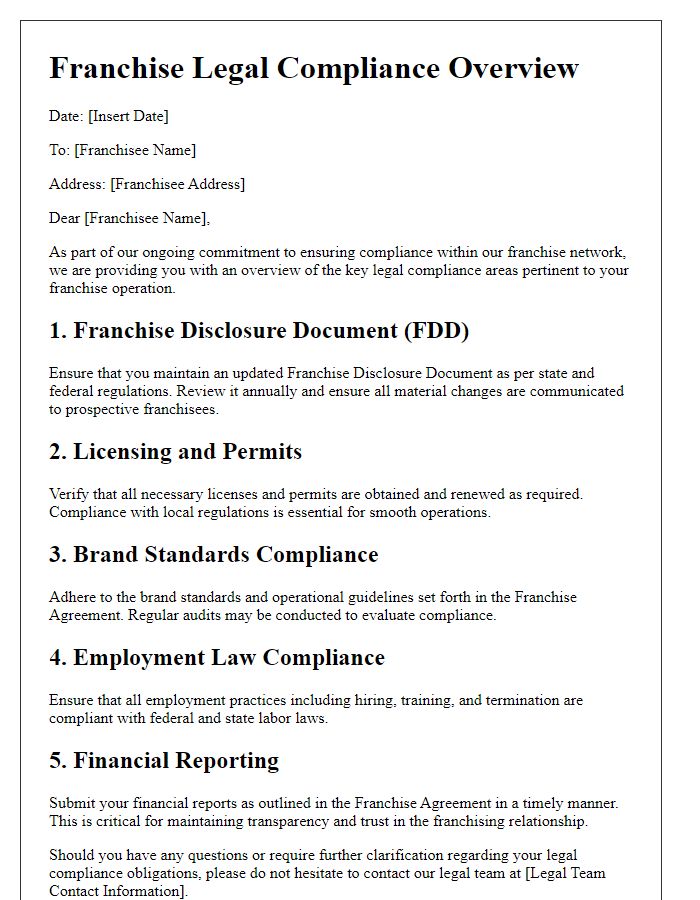
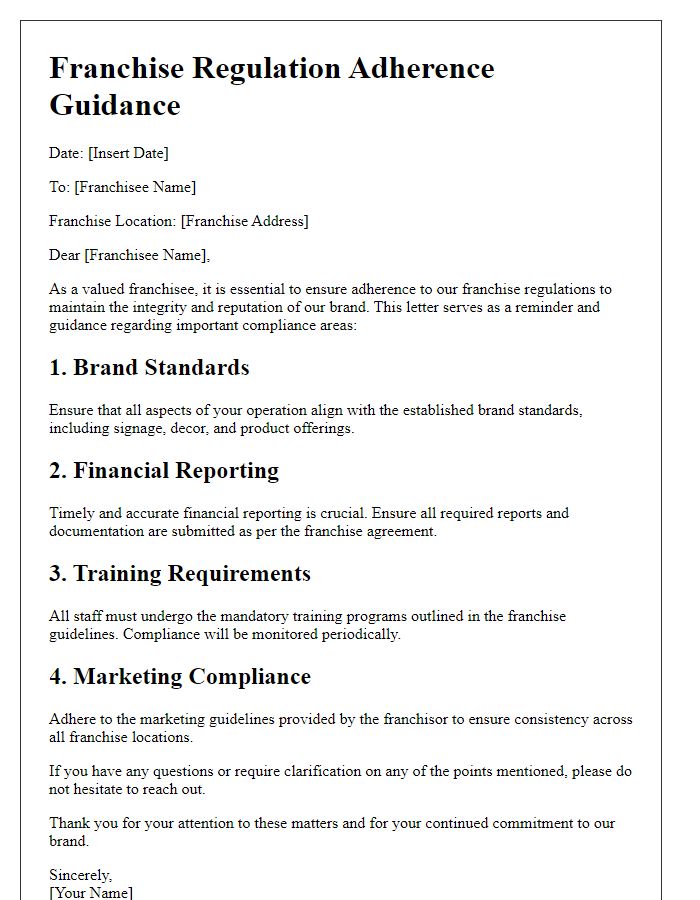
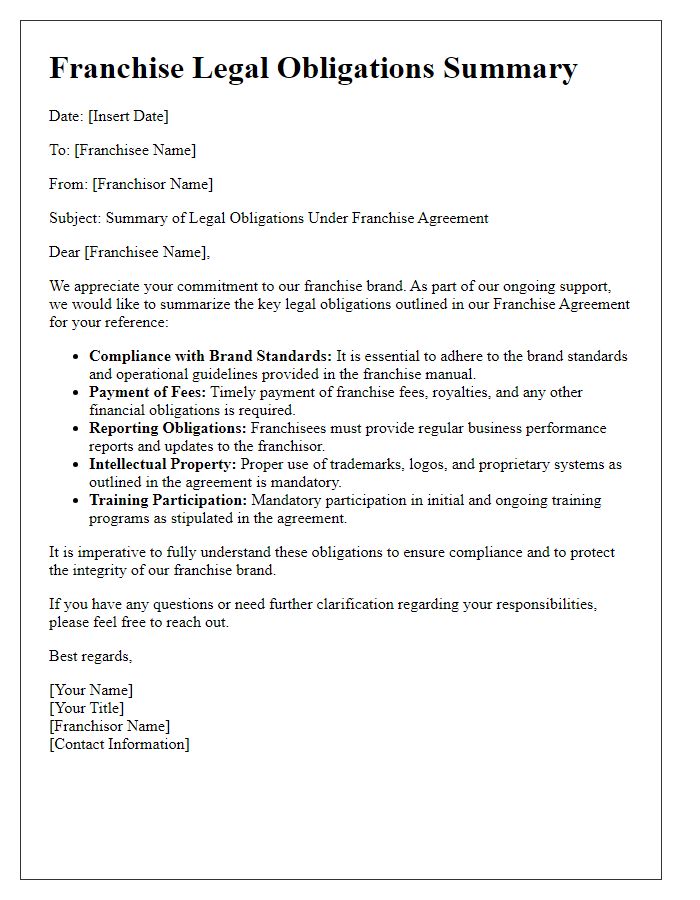
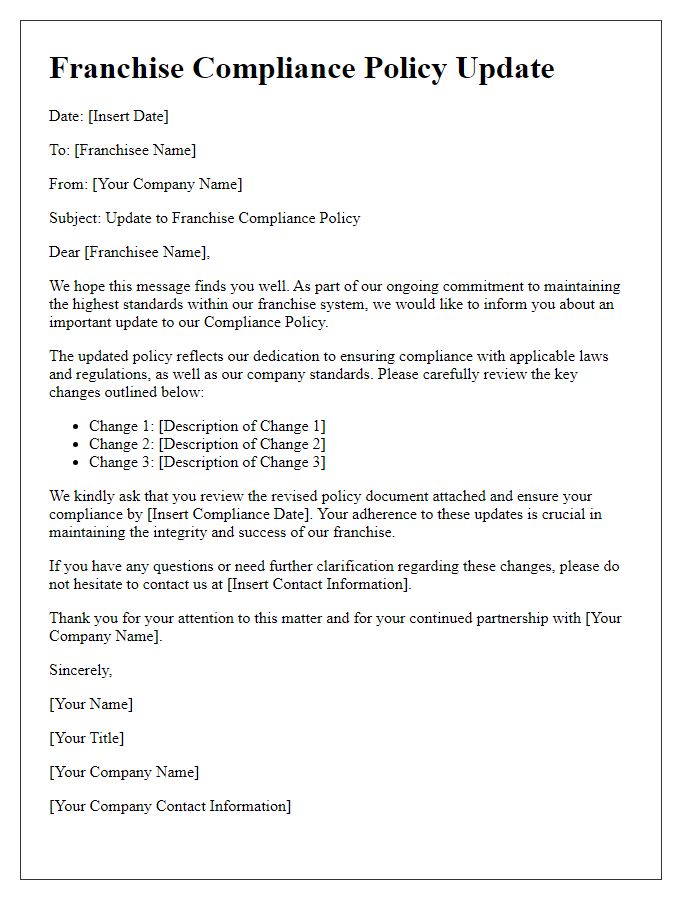
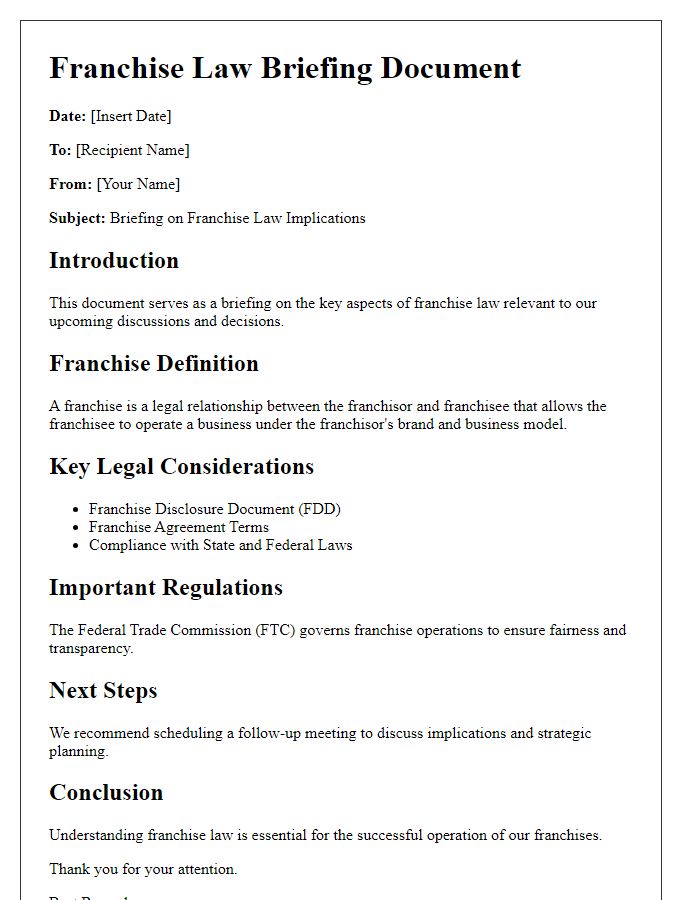
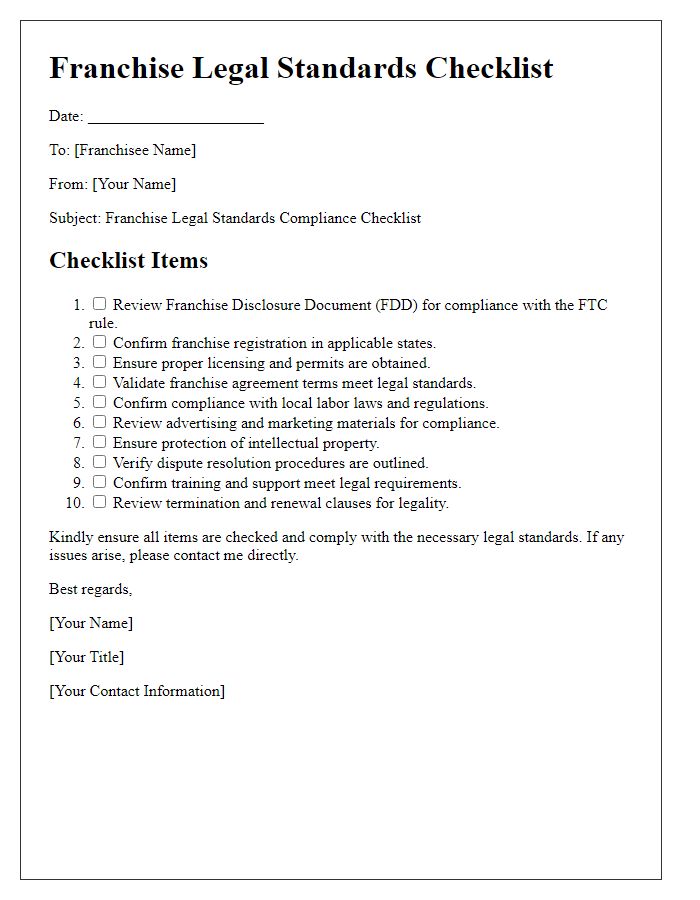
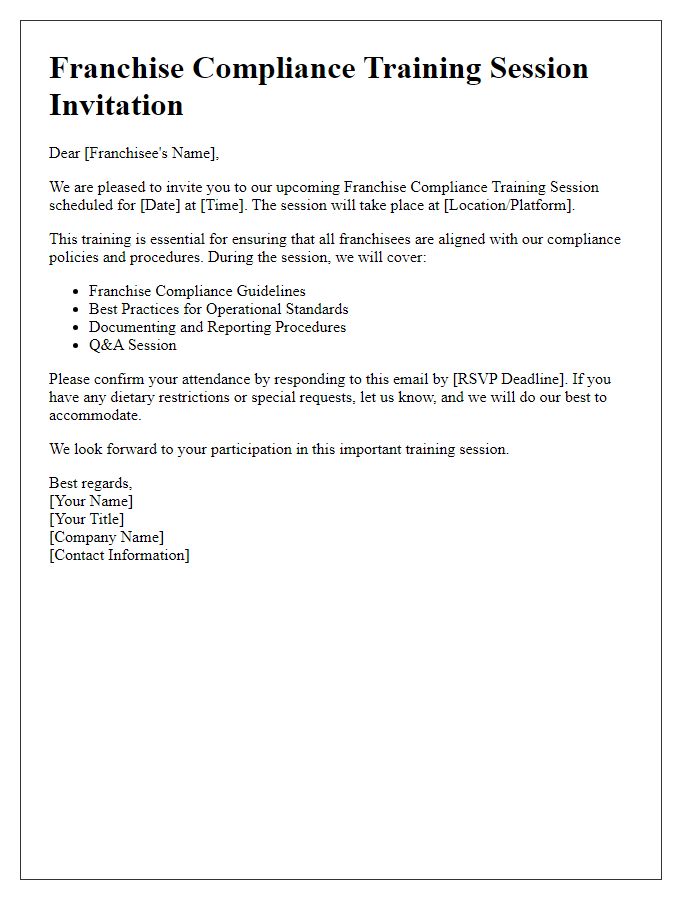
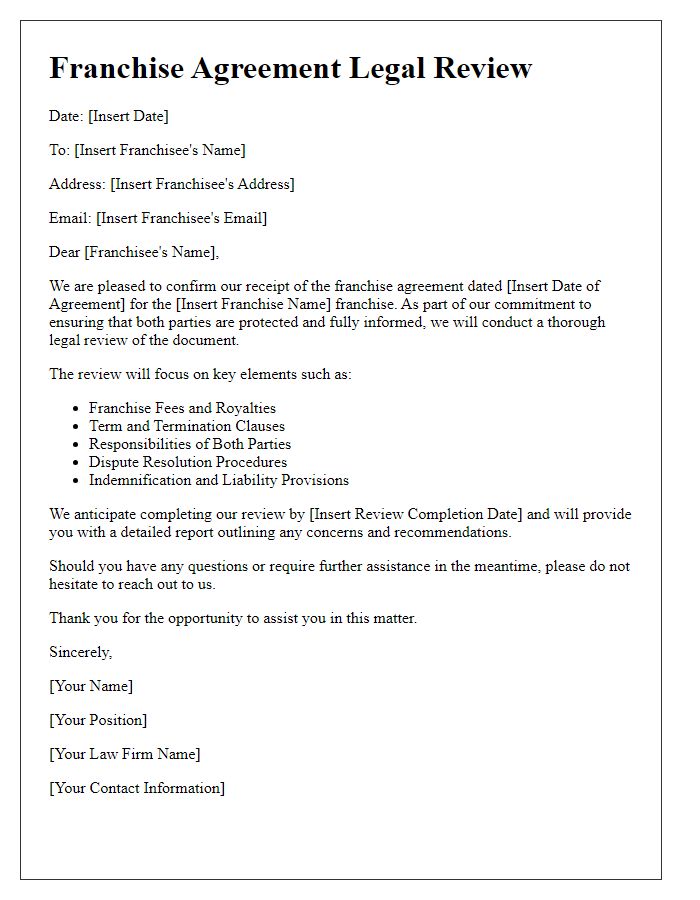
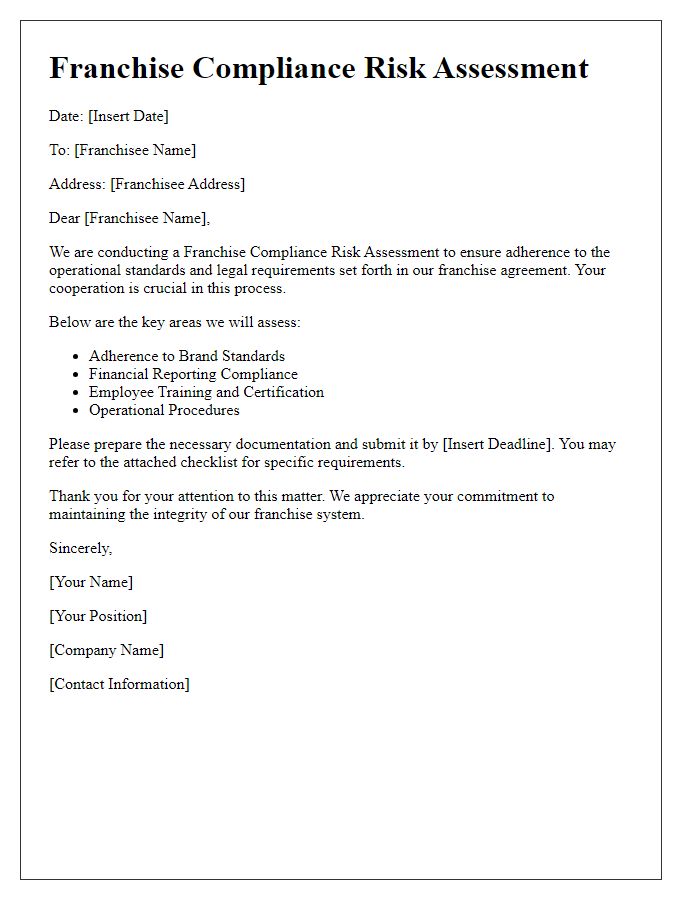
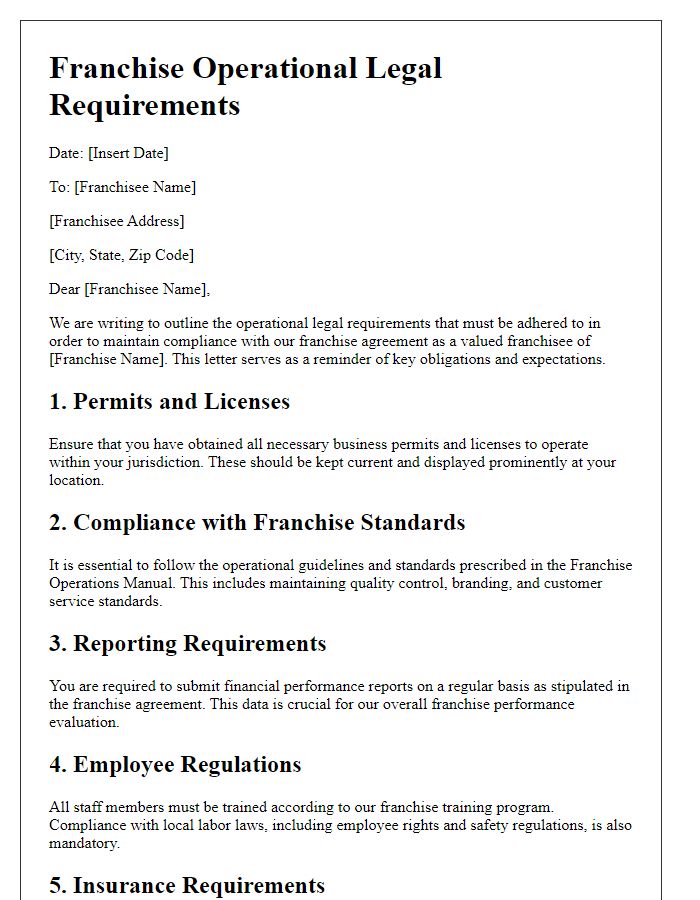


Comments